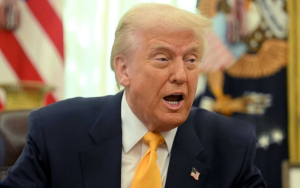FBI Uncovers Massive North Korean Cyber Fraud Operation
Others are reading now
The U.S. government is stepping up efforts to counter cyber threats, and a recent case sheds light on the global reach of these schemes.
A federal court in St. Louis has indicted 14 North Koreans for a plot to extort money from U.S. companies, reports BBC News.
The funds, prosecutors say, were funneled into North Korea’s weapons programs. The indictment reveals a sophisticated operation involving IT workers posing as employees of American firms.
The scheme reportedly involved thousands of North Korean tech workers using stolen or fake identities to secure remote jobs with U.S. companies.
Also read
Prosecutors say the group, working for two firms controlled by North Korea—Yanbian Silverstar in China and Volasys Silverstar in Russia—generated at least $88 million over six years.
These workers, referred to internally as “IT warriors,” demanded high salaries from their employers.
They also reportedly stole sensitive company data and used it to extort more money, threatening to release the information if their demands were not met.
The suspects now face charges including computer fraud, identity theft, and money laundering.
To avoid detection, the group used complex tactics. They hired U.S. residents to set up laptops provided by American companies.
These residents installed remote access programs, making it appear as though the North Koreans were working domestically when they were actually overseas.
Officials believe the indicted individuals are still in North Korea, making it unlikely they will face justice.
However, the U.S. State Department has offered a reward of up to $5 million for information about the suspects or the companies involved.
Ashley T. Johnson, an FBI Special Agent, emphasized the scale of the issue.
“While we’ve dismantled this group and identified its leaders, this is just the tip of the iceberg,” she said. “North Korea has trained and deployed thousands of IT workers who are targeting American companies every day.”
Authorities have not disclosed the names of the affected U.S. companies.
Investigators say the scheme is part of a broader effort by North Korea to generate revenue for its regime through illicit means.








